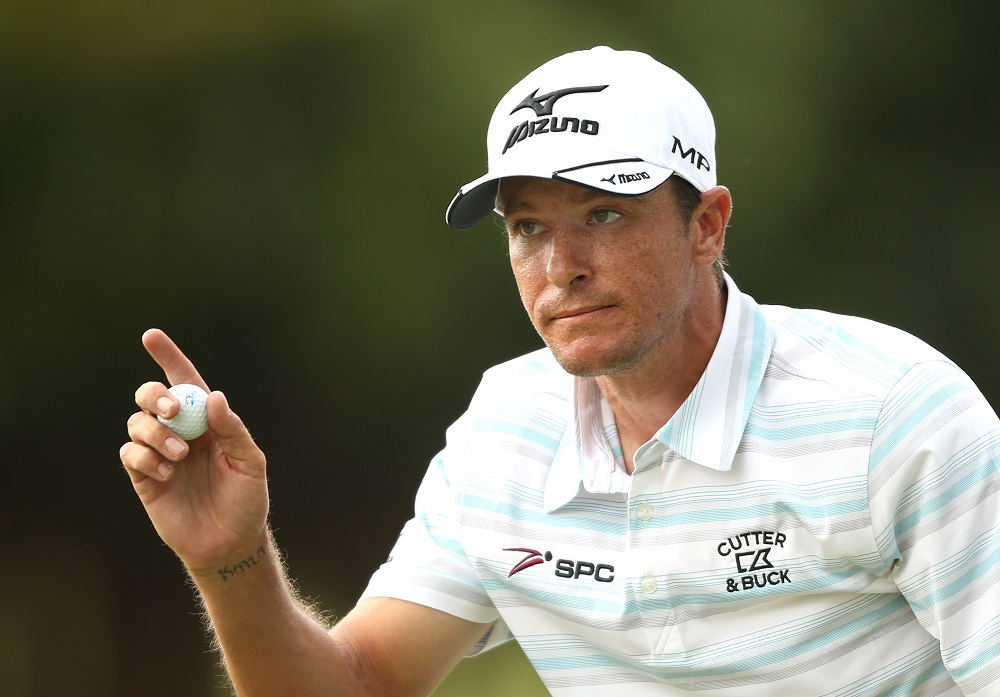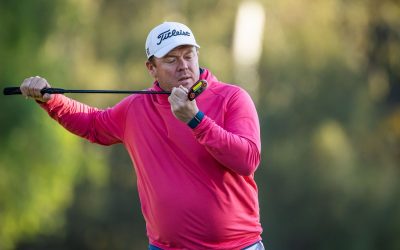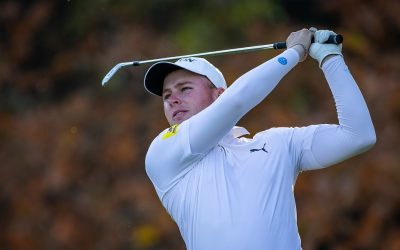Less than a week after winning his second Sunshine Tour title after a gap of over 11 years since his first one, Alex Haindl had to withdraw from his very next event as his back problems flared up all over again.
Before he won the Sun Sibaya Challenge at Mount Edgecombe in October, Haindl, who took his first title in May 2006 in the Suncoast Classic, had been experiencing a pretty impressive run of form. He hadn’t finished outside the top 20 in six consecutive events, and three of those were in fact top-10s.
The win was gratifying, and reward for some of the most admired hard work on tour – Haindl is widely respected as a grinder and someone who works tirelessly on his game. “I’ve always said that I’d love to win again but it isn’t the only thing that I’m going for,” he said after his victory. “I just try to put together as many good events as possible. So, to win is very nice. It’s a little bonus.”
It’s a bonus because there were times when he thought he’d never play golf again.
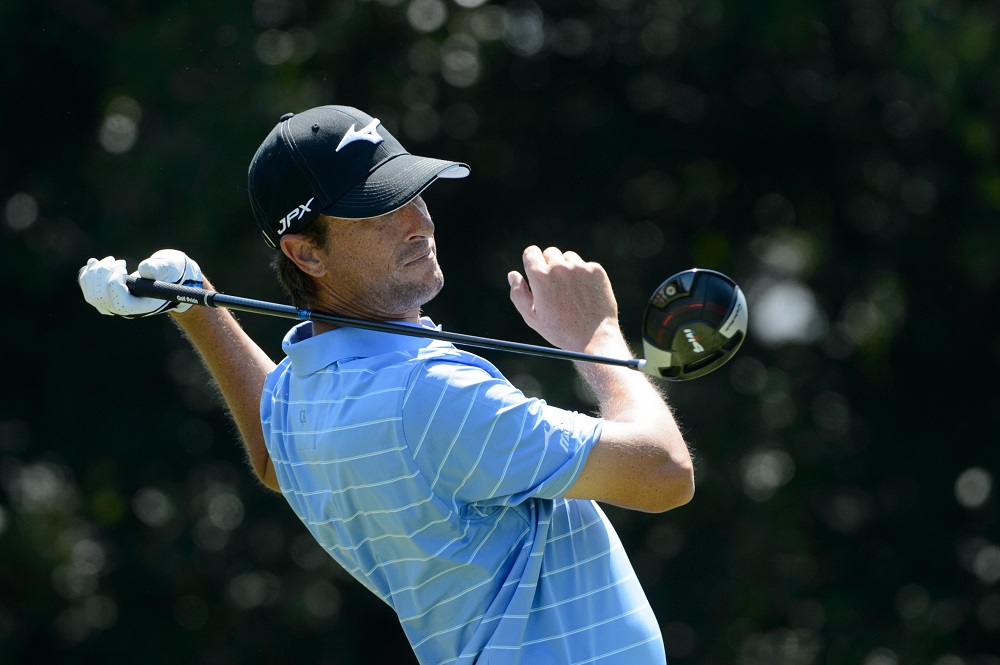 “I have degenerative discs and damage to the nerve from the wear and tear the golf swing puts on the lumbar spine,” he says. “My discs dry out, so the gap between the vertebrae narrowed and would basically collapse onto the nerve when the rest of the muscles got fatigued, sending the surrounding muscles into spasm. It’s like having a car without shocks. This would leave me in severe pain and not able to put any pressure on my right leg as that would send a sharp pain from my foot up through my back and into my neck. Walking or swinging a golf club became impossible.
“I have degenerative discs and damage to the nerve from the wear and tear the golf swing puts on the lumbar spine,” he says. “My discs dry out, so the gap between the vertebrae narrowed and would basically collapse onto the nerve when the rest of the muscles got fatigued, sending the surrounding muscles into spasm. It’s like having a car without shocks. This would leave me in severe pain and not able to put any pressure on my right leg as that would send a sharp pain from my foot up through my back and into my neck. Walking or swinging a golf club became impossible.
“I started having serious issues in 2008-09 where I would get these symptoms after eight or nine weeks in a row on tour and I would be out of action for a week or two. In 2012 while I was playing on the European Tour it started happening more frequently and the workload my back could handle became significantly smaller. I remember events where I would arrive and get in nine holes of practice if I was lucky and try to recover before teeing it up on Thursday.
“In 2015 it became a permanent problem. I couldn’t walk 100m without the pain.
“Speaking to neurosurgeons didn’t give me much optimism as they wanted to do a spinal fusion. There would have been little hope for me to continue playing professionally because I would lose most of my rotation. Luckily for me Shaun Pollock suggested I see his neurosurgeon in Durban, Dr Stephen Joubert. I ended up having a dynamic decompression and stabilization done which had much the same effect as the fusion but I kept most of my rotation.
“The surgery was a success and most of the time I have been pain-free.
“With the work I now do with my strength and conditioning trainer Herman Liebenberg at Sports Performance Clinic in Bloemfontein we have managed to keep my back strong and, barring a couple of occasions, relatively free of pain since then. The work I do with them (one-and-a-half to two hours a day, five days a week) has now become as important, if not more so, than the hours spent physically working on my game.”
He nearly didn’t play in the Sun Sibaya Challenge, having been experiencing pain again. “My brother Andreas, who caddies for me, convinced me to play. He said ‘Well, you need to get into Mauritius and you need to win somewhere’, so I said, ‘Let’s go!’”
And then, ahead of the Vodacom Origins of Golf Final at Simola, it happened again. “It wasn’t the best timing because I was feeling very confident and comfortable going to a course where I have played nicely in the past. But it doesn’t worry me too much. I’ve been through this enough!
“I was in the bunker in the pro-am and as I addressed the ball I felt a sharp pain in my lower back. This wouldn’t have been helped by the 1,600-kilometre drive from Durban to Knysna. I went for treatment twice on the following day to try get myself into playing condition but waking up on Thursday morning my back was still in spasm and I had to withdraw.
“This was only the second time I have had to withdraw from a tournament while being at the event so I have been lucky in that regard. The back is a temperamental thing – it happens!”
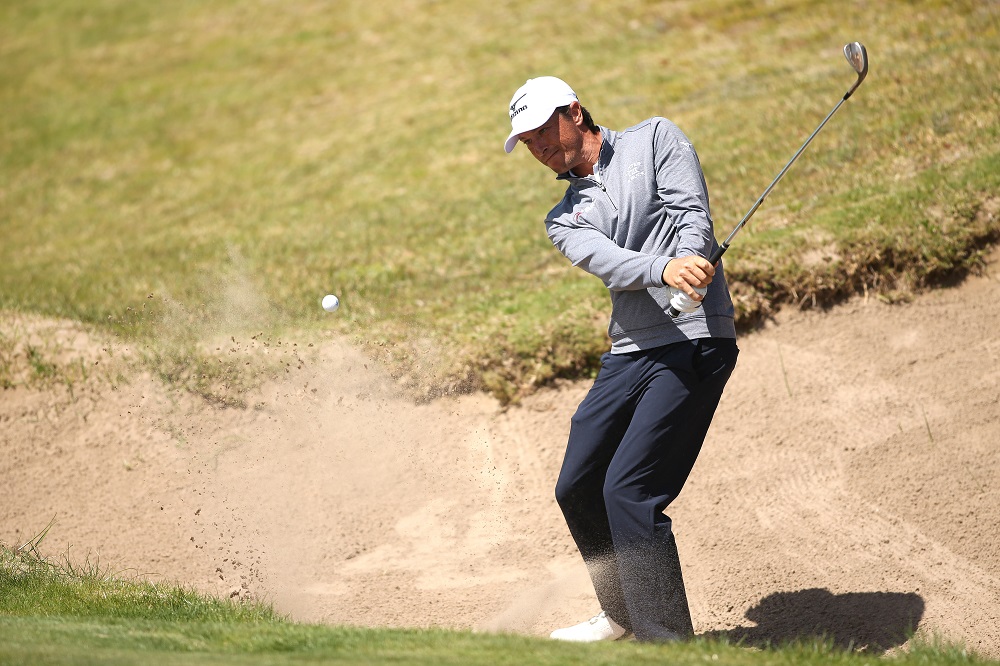 Through all the years between his titles, Haindl has always been the man you’d expect to see on the range or the practice green when everyone else has gone home. “I have always been very hard on myself,” he says. “I tend to try and grind myself back into form by overworking a bit on the range and in the gym. This doesn’t work. You need to let things progress for themselves.”
Through all the years between his titles, Haindl has always been the man you’d expect to see on the range or the practice green when everyone else has gone home. “I have always been very hard on myself,” he says. “I tend to try and grind myself back into form by overworking a bit on the range and in the gym. This doesn’t work. You need to let things progress for themselves.”
To have that level of commitment, you have to have a good support system. “My wife Maggie and my girls Mikayla and Skylar have always been the ones who kept me going,” he says. “I think it must be very difficult being married to a golfer, or any athlete who travels as much as we do!”
The support system in Bloemfontein is necessarily circumscribed, due to the city’s size. But it’s very effective. “I moved to Bloemfontein with my dad in 1992 after my parents got divorced and I’ve been here ever since,” he says.
“It’s a great place to raise a family because it’s nice and quiet. I also get to spend more time with my family because I don’t sit in traffic a few hours every day. Going to the golf course or the gym only takes 15 minutes so I can always slip away quickly to pick up my kids from school.
“Schoeman Park where I am a member and do all my practice is a great little course. Not very long, but it teaches you to execute every shot imaginable. It is relatively tight as well so it is great practice off the tee. The members are also a great bunch of people and it’s always nice to be there.”
In Bloemfontein, there is a large number of people who help him. “Adrian le Roux, Morne Castelyn, Herman Liebenberg and the rest of the team at SPC are a huge part of my support,” he says. “And Quinton Williams and Corne Viljoen are always willing to help if I have questions about the swing, and my practice partner and good friend, Jacques de Villiers is a positive influence. And there’s my mental coach Christo Spies too.”
The win has reignited belief in Haindl. “It has always been important to me to perform in South Africa because this is where I have to earn my bread and butter,” he says. “But I would love to get back to the European Tour. I really enjoyed my time over there and still believe I could contend there. I always felt like my game suited the conditions. As soon as I can afford it I will go back to qualifying school and give it another shot.”

